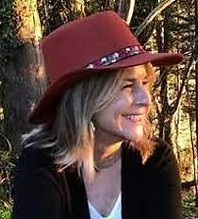Whether you want to write more about the more-than-human world or draw on the ecological to inspire other artistic endeavors, this outdoor workshop with nature writer and creative writing professor Leslie Carol Roberts will offer new and creative ways of perceiving the world in which you live. Useful for writers of all styles and genres, we will look at ways of translating local nature and ecologies - birdsong, redwood bark, spring flowers - into insightful writing.
Leslie will guide you through techniques for observing nature and placing yourself in a landscape, how to use all of your senses to write ecologies, and ways of incorporating braided narratives into your work. This is a chance to slow down, observe, and begin to frame a longer essay about your own unique relationships with varied ecologies.
Leslie Carol Roberts is a founder of the ECOPOESIS Project, which creates collaborative work and thought in response to climate change, countering the dark ecology views that are both unhelpful and often inaccurate. Through globalworkshops and lectures, ECOPOESIS brings together humans from across disciplines. During the pandemic, HOW WE HEAR NOW was created to capture, through audio files, the sound of ecologies globally. The collaborative sound collage debuted in San Francisco, July 2021.
Leslie was a Fulbright Fellow at Gateway Antarctica New Zealand and has chaired programs in design and writing at California College of the Arts, where she remains a professor focusing on writing. She has written two books on ecologies, The Entire Earth and Sky: Views on Antarctica, based on living in Antarctica for four months; and Here Is Where We Walk: Episodes from a Life in the Forest, based on 15 years of living in the Presidio; a chapter in Performing Ice (2020), and interviews and essays for The Believer, the Sydney Morning Herald, Forbes, The Bellingham Review, among many others. She is a member of SCAR-HASS, the United Nations Antarctic humanities and social sciences study group and gave an invited talk at their 2021 conference in Kobe, Japan.

